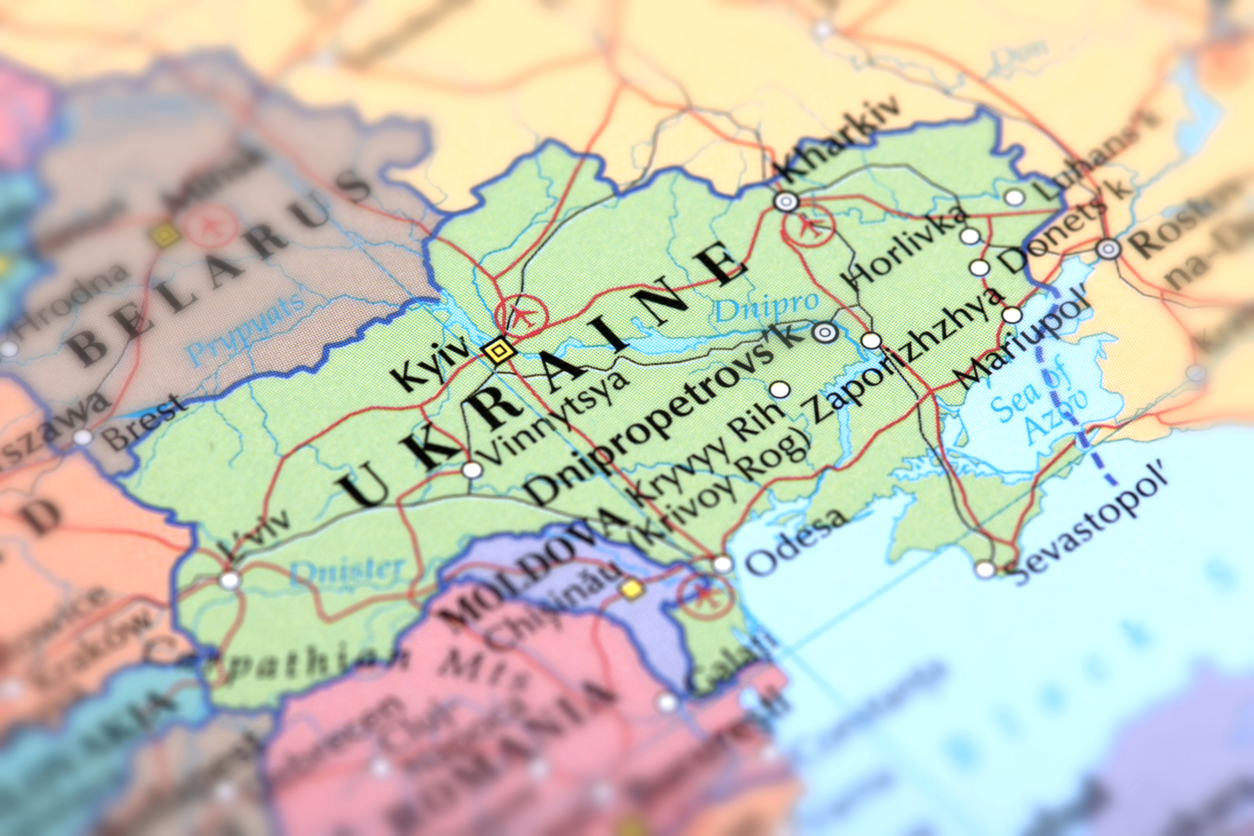War in Ukraine, the economic scenario and Etica Funds positioning. Events oblige us to recount things that we would never want to happen. We recommend that you read “War is never a solution”. However, as responsible investors we need to analyse and evaluate the implications for financial markets and portfolios.
Russia launched an invasion of Ukraine on 24 February 2022 to the world’s horrified astonishment. The West immediately responded with heavy economic and financial sanctions against Russia, which may also have repercussions in other countries. The outlook for economies around the world is uncertain, but we are likely to see lower economic growth and higher inflation rates lasting longer than previously expected.
Expectations before the war in Ukraine
It would be helpful to step back to get a bigger picture of the macroeconomic context and expectations resulting from this crisis and to assess what has changed compared to the baseline scenario.
Expectations were for moderate economic growth in the first part of 2022. Despite the constraints imposed by the new Covid Omicron variant, this upward trend looked set to proceed, aided by consumption (itself buoyed up by rising disposable income) and the easing of supply chain bottlenecks, thereby giving a positive boost to investment. Inflation emerged as not entirely transitory, but was expected to fall back towards 2% after the easing of supply side price pressures and the actions of the major central banks. The latter had already announced the gradual reduction of monetary stimulus, albeit with varying intensities and speeds. Against this backdrop, we witnessed expectations in the financial markets change shape in view of interest rate increases, widening spreads and strong sectoral rotations in the equity markets, which penalised those stocks most sensitive to interest rate movements.
Expectations for the second half of the year pointed to a return to an equilibrium scenario with robust growth (above potential), higher but contained inflation and central banks working to fulfil their mandate to control price growth without damaging economies. Markets, having discounted rate increases, would have been keen to assess how much the loss of central bank support might impact growth and corporate profits.
Scenario after the war in Ukraine
The geopolitical crisis has forced us to revise our outlook, although the possible effects in terms of negative shocks to the global economy are still difficult to estimate. Much will depend on Russia’s reactions and how the crisis will impact oil and gas prices and business and consumer confidence.
It is, however, likely that there will be a scenario with weaker growth and more persistent inflation than previously expected: higher energy prices could lead to structural increases in price indices and a reduction in consumers’ spending power. Some economists reckon that there could also be consequences for enterprise margins, with impacts on European growth ranging from 0.5% to 1.5%.
Etica Funds positioning
As regards direct exposure to the crisis, it should be emphasised that the ethical fund portfolios do not invest in Russian, Belarusian or Ukrainian debt securities (for more information, see the Selection section).
We would also like to make clear that on the equity side, Etica Funds do not invest in Russian and Belarusian companies. Indirect exposure to Russia arises from revenues that ethical portfolio companies earn from the Russian market and remains marginal and limited to a small number of stocks.
We would also like to point out that the funds’ participation in financial securities is suspended as from today (with the exception of some Green Bonds for the Etica Impatto Clima fund), which have been heavily impacted by the volatility of recent days. This means that the investable scope of Etica Funds does not include any major banks exposed to Russia.
The current situation is constant flux and it is possible that turbulence on the Russian market could also have an impact on the valuations of stocks held by Ethical System funds. However, the broad diversification of our portfolios should be able to attenuate any short-term volatility.
The approach of Etica Funds portfolios
In this context, the bond compartment of Etica Funds portfolios had already gradually returned to neutrality after starting the year with a strong underweighting in terms of duration: the rise in interest rates and widening of spreads on peripheral and semi-core stocks (e.g. France, Belgium, Austria, Ireland and Finland) made it advisable to reposition the portfolios towards bond issues that showed an interesting relative value, while waiting for the meetings and decisions of the Central Banks.
A cautious but constructive approach to equity portfolios meant positioning them with a neutral exposure to the benchmark, with some active choices in terms of sectors and geography to balance the portfolio’s structural and defensive investments and to include areas that could benefit from reopenings and consumption growth in the second half of 2022.
Caution is of the essence in this scenario and periods of sustained volatility are highly likely, but the current situation does not call for portfolio reallocations.
Bonds
Bond rates have started to fall again, as always happens in situations of shrinking risk appetite. The funds’ portfolio duration remains neutral with a preference for Italian bonds and European issues in preference to the German Bund, which remains relatively expensive at present.
Central banks
The Central Banks are giving no clues at the moment: on the one hand, they will have to be ready with a monetary response to shore up the banking system and ensure financial market stability (liquidity provision), but on the other, they will also have to uphold their medium-term mandate of price stability. The war in Ukraine is likely to slow down the FED’s attitude change, but it will probably still decide to raise rates at its next meeting in March. The ECB, on the other hand, seems more likely to postpone its tightening up of monetary policy: the crisis could hit European growth more severely and the Central Bank has declared itself ready to provide all the necessary support. This explains the preference for Italian securities and, in general, peripheral over core securities (e.g. Germany). These activities could benefit from the fact that the geopolitical crisis may have a unifying effect on the European Union, which will adopt all possible measures, including fiscal aid, to alleviate the impact of energy price increases on economies.
Stock markets
On the equity side, the readjustment of stock market indices was focused mainly on the rate increase, without making a more long-sighted assessment of growth and the impact on company multiples. But the Ukraine war crisis has instead shifted investors’ attention to how a sharp slowdown in growth could impact multiples and company profits.
As already noted, this situation calls for caution and justifies a neutral positioning, with balanced exposure to defensive sectors such as consumer staples and telecommunications. The crisis has also highlighted the urgent need to end dependence on Russia for our energy needs; if successful, this could lead to an acceleration in green investments for the purpose of diversified energy provisioning, especially in Europe.
The continental utilities sector is holding up well and there are positive effects for industry and technology, particularly in the sectors that support green investments.
In the US, it may be true that profits are withstanding the crisis better than in other regions, but increased risk aversion could lead to further corrections, especially as the market risk premium is still low compared to what it was at the height of the Covid-19 crisis, for example. This still explains the underweighting on the US market, which will allow room for growth and flexibility in the event of positive developments. Japan is still benefiting from strong support in terms of valuations and earnings momentum. The real risk to the Japanese market could come from a heavy risk-off in the markets, with a consequent impact on the yen. The currency thus strengthened could then make it necessary to reduce the overweight on this market.






